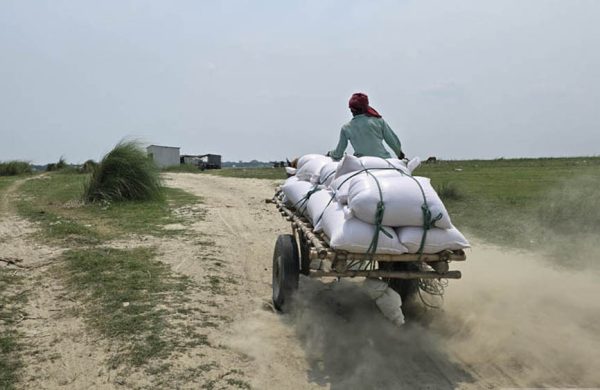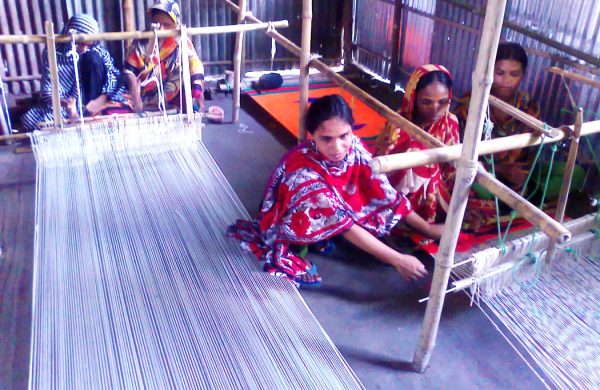Pabna Char Pechakola: Horse carts still rule the road on the remote char
- Update Time : Thursday, August 7, 2025

Pabna Correspondent:
When we arrived at Dakshin Char Pechakola, one of Jamuna’s shoals, it was already past noon. Little jetties had sprung up here and there. At one of these ghats, I noticed around 10 to 15 horse carts. A few were loaded with sacks of crops, while others waited for passengers. It was clear that this traditional vehicle was the main mode of transport in the area.
I went to Dakshin Char Pechakola by engine boat from Nakalia Bazar in Bera upazila, Pabna. This was a remote shoal with no electricity, no paved roads or modern vehicles. It’s about two to three kilometers from the riverbank to the villages. The roads are sometimes muddy and sometimes filled with sand, making it difficult to travel by any vehicle other than a horse cart.
When the people of the char need to buy goods, get medical treatment or when they go to school or college, they first travel to the river and then take a boat the rest of the way. Some people walk to the river, but most rely on horse carts. From commuting to carrying crops and carrying goods to the market, everything is done with these carts. They are in great especially on market days.
Around 150 families reside in the remote village of Char Pechakola. Here the horse cart isn’t a relic of the past, but a vital part of daily life. Almost every household owns one, and the upkeep of these animals is a significant responsibility.
The daily cost to feed a single horse is between, Tk 300 to Tk 500, with a diet of oil cakes, bran, grass, chickpeas and rice feed. Then there’s the extra expense of veterinary care.
Many villagers supplement their income by renting out their carts. A driver can earn anywhere from Tk 500 to Tk 2,000 a day. Kamrul Islam, a local driver, explains, “The carriage is essential for transporting our crops and for family travel. When I’m not using it, I hire it out to others to move goods or people to the market.”
Making a cart costs around Tk 20,000 to Tk 30,000. This included the materials and labour. Local workmen can construct one in five to six days. The horse itself is a larger investment, a standard animal priced around Tk 40,000 to Tk 60,000, while a better horse can cost more than Tk 100,000.
The people of Char Pechakola don’t just buy horses for practical reasons.
Owning a horse cart is also a matter of pride for each family. “Almost every household here has a horse cart,” says Ibrahim Hossain (65), a leader in the community. “In our family, my brothers and I operate run these carts. Life would be almost impossible without them.”
According to Abul Kalam Azad, an assistant professor of geography and environment at Manzur Kader Women’s College in Bera, “I often visit the Jamuna char area. These carts are a lifeline for farming, going to the market and even transporting sick people. The horse cart isn’t just a vehicle. It has become an integral part of life there.”
















